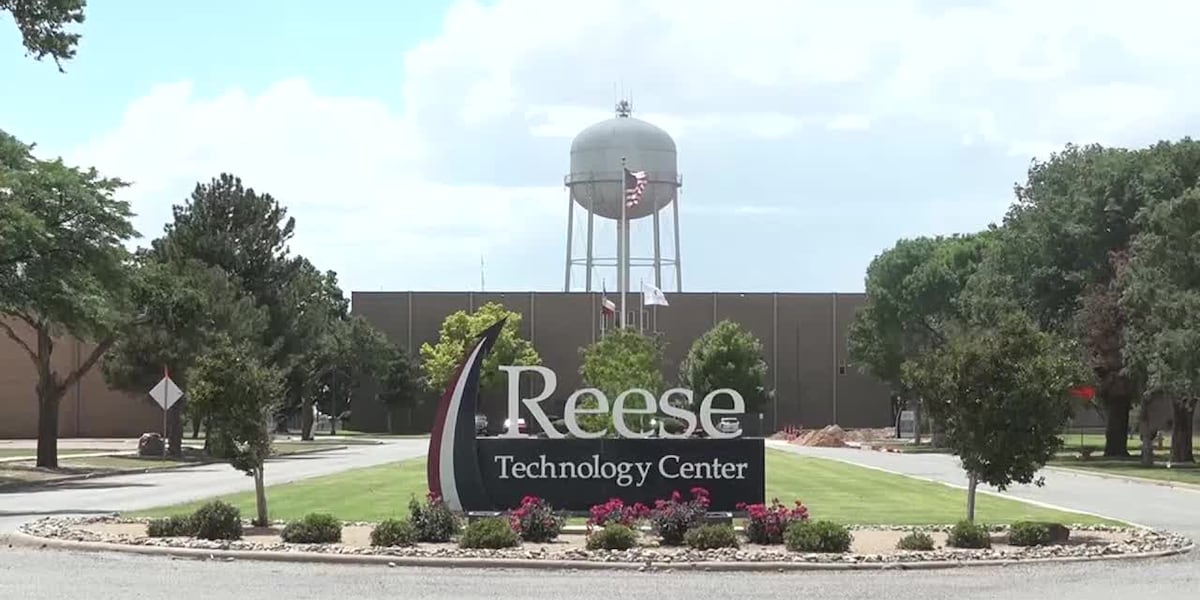## Level Up: Texas Tech and Reese Tech Center Join Forces in a House Bill Power Move
Gamers, get ready to hear some exciting news straight from the Lone Star State! A recent House bill is shaking things up in the world of tech education, mandating a stronger partnership between the powerhouse that is Texas Tech University and the renowned Reese Technology Center.


A Global Impact: Reese Technology Center’s Research and International Collaborations
The recent legislation bolstering the Reese Technology Center’s partnership with Texas Tech University signifies a significant development for the global landscape of technological research. The center’s expanded focus on national security and critical infrastructure research, coupled with its potential to house a Sensitive Compartmented Information Facility (SCIF), positions it as a hub for collaboration with international partners. This could potentially lead to breakthroughs in areas such as cybersecurity, artificial intelligence (AI), and advanced materials, with implications extending far beyond the borders of Texas.

Consider the realm of cybersecurity. The center’s research into hardening systems against electric attacks and directed energy weapons could directly benefit allied nations facing similar threats. Sharing knowledge and expertise in this domain fosters a more secure global environment. Furthermore, collaborations with international research institutions could accelerate the development of novel cyberdefense technologies, creating a network of innovation that safeguards critical infrastructure worldwide.

In the field of AI, the Reese Technology Center’s research could have a profound impact on international development initiatives. By partnering with organizations in developing nations, the center could leverage its expertise to address pressing challenges such as healthcare, agriculture, and education. Imagine AI-powered systems designed to diagnose diseases in remote areas or optimize crop yields in resource-scarce regions—these are just a few examples of how the center’s research could contribute to a more equitable and sustainable world.
The Sensitive Compartmented Information Facility (SCIF): A Secure Environment for Top Secret Research
The establishment of a SCIF at the Reese Technology Center marks a significant step towards elevating the center’s research capabilities. This highly secure facility will enable Texas Tech to conduct classified research at the top secret, Sensitive Compartmented Information (SCI) level. The SCIF’s stringent security protocols are designed to protect sensitive national security information from unauthorized access and disclosure.
Features and Security Protocols of the SCIF
SCIFs are built with advanced security features to ensure the utmost confidentiality. These features typically include:
- Controlled Access: Strict access controls, including biometric authentication and security clearances, are implemented to limit access to authorized personnel only.
- Physical Security: The SCIF’s physical structure is designed to withstand intrusion attempts, featuring reinforced walls, multiple layers of security checkpoints, and surveillance systems.
- Electronic Security: Advanced electronic security measures, such as intrusion detection systems, data encryption, and network monitoring, are employed to safeguard against cyber threats.
- Communication Security: Secure communication channels, including classified networks and encrypted communication devices, are used to transmit sensitive information.
- Cybersecurity: Developing advanced cybersecurity solutions to protect national infrastructure and critical systems from evolving threats.
- Artificial Intelligence: Advancing AI research with a focus on applications in defense, intelligence, and national security.
- Weapons Systems Development: Researching and developing next-generation weapons systems and technologies to maintain national security superiority.
- Space Exploration: Conducting research related to space exploration and defense, including satellite technology and space-based weapon systems.
Unlocking Top Secret Potential
The SCIF will facilitate research in various critical areas, including:
Workforce Development
The SCIF presents a unique opportunity for students and researchers to gain valuable experience in highly classified research environments. Working within the SCIF’s secure facilities, individuals will be exposed to cutting-edge technologies and contribute to groundbreaking research with national security implications. This experience will equip them with sought-after skills and knowledge in fields crucial to national security.
Game Development Implications: Reese Technology Center’s Research and the Gaming Industry
The advancements in research conducted at the Reese Technology Center have the potential to significantly influence the future of game development. The center’s focus on areas such as AI, virtual reality (VR), and cybersecurity presents exciting opportunities for the gaming industry to push the boundaries of innovation and create immersive, engaging, and secure gaming experiences.
Emerging Technologies
The research conducted at the Reese Technology Center could directly impact the development of new game technologies:
- Artificial Intelligence (AI): Research in AI could lead to the creation of more sophisticated and realistic non-player characters (NPCs) in games. Imagine NPCs that can adapt to player behavior, learn from their actions, and provide dynamic and challenging gameplay experiences.
- Virtual Reality (VR): Research into advanced VR technologies could result in more immersive and realistic virtual worlds. This could lead to the development of games that offer unparalleled levels of presence and engagement, blurring the lines between the virtual and the real.
- Cybersecurity: The center’s expertise in cybersecurity could contribute to the development of more secure online gaming environments. This would help protect players from online threats, such as cheating, hacking, and data breaches, ensuring a safe and enjoyable gaming experience for all.
- Performance Analysis: AI-powered tools developed at the center could be used to analyze player performance, identify strengths and weaknesses, and provide insights to help esports athletes improve their skills and strategies.
- Anti-Cheating Technology: Cybersecurity research could lead to the development of more sophisticated anti-cheating measures, ensuring fair competition in esports tournaments and protecting the integrity of the games.
- Virtual Tournament Arenas: Research into VR could create virtual tournament arenas that offer immersive and engaging experiences for both players and spectators.
- AI Bias: AI algorithms used in games could potentially perpetuate existing biases in society, leading to unfair or discriminatory outcomes for players.
- Player Privacy: The collection and use of player data in games raise concerns about privacy and data security. It is essential to ensure that player data is handled responsibly and ethically.
- Weaponization of AI: The development of AI-powered weapons systems could have far-reaching consequences for society. It is important to engage in thoughtful discussions about the ethical implications of using AI in warfare.
Esports & Competitive Gaming
The Reese Technology Center’s research could also have a significant impact on the growing esports industry:
Ethical Considerations
As the gaming industry continues to evolve and integrate advanced technologies, it is crucial to consider the ethical implications of these advancements. The Reese Technology Center’s research in AI and cybersecurity raises important ethical questions that the gaming industry must address:
Conclusion
So, what does this all mean for the future of gaming in Texas? This house bill, demanding a stronger partnership between the Reese Technology Center and Texas Tech, signals a clear commitment to fostering the state’s burgeoning gaming industry. By leveraging the expertise and resources of both institutions, the bill aims to create a powerhouse for game development, attracting talent, fostering innovation, and ultimately, building a thriving ecosystem for game creators and players alike. This isn’t just about building better games; it’s about building a future where Texas stands shoulder-to-shoulder with industry giants like California and Japan. The potential economic impact, the creation of high-paying jobs, and the injection of creativity into the state are all significant benefits. As Texas Tech and the Reese Center forge this new partnership, one thing is clear: the Lone Star State is ready to level up and become a major player in the global gaming arena. The question now is, will developers and gamers alike rise to the challenge?
